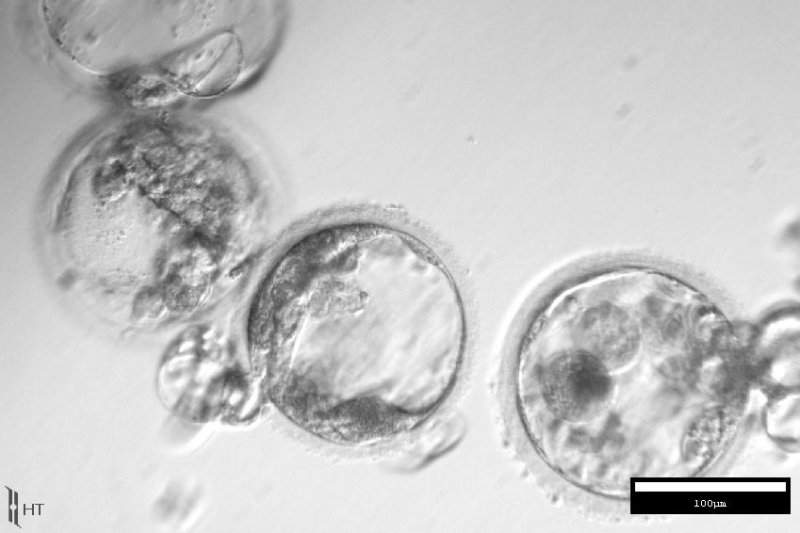A collection of stem cells created from human skin cells. New research suggests stem cells in plants and animals behave similarly. Photo by Oregon Health and Science University/European Pressphoto Agency
May 12 (UPI) -- To the surprise of scientists, new research showed stem cells in plants and animals behave similarly.
"The plant and animal kingdoms were separated through evolution more than 1.6 billion years ago," Carsten Peterson, a professor of theoretical physics at Lund University, said in a news release. "It is surprising that the interactions between the handful of key genes that control the fate of each stem cell are so similar in both cases."
Peterson and his colleagues used mathematical formulas to analyze the interactions between proteins during stem cell evolution, as well as the interactions between proteins and genes linked with control stem cell formation.
"Although the proteins in mammalian and plant stem cells are very different when studied separately, there are major similarities in the ways in which they interact, that is, how they strengthen or weaken each other," Peterson said.
Stem cells are undifferentiated cells capable of forming a variety of specialized cells. A sort of master key, stem cells are essential to growth and tissue generation. In mammals, specialized cells can't return to their former, undifferentiated state. But plant cells can turn back into stem cells.
"Specialized cells of plants can return to being stem cells without external manipulation," Peterson said. "In the plant world, there is a natural reprogramming process."
The research -- published in the journal PLOS ONE -- identified subtle differences in protein behavior that explains the unique versatility of plant cells.
Animal cells can be coaxed back into a stem cell state through external manipulation, but the process -- which involves increasing the concentration of specific proteins -- is extremely delicate, complex and still not well understood.
By better understanding why plant cells are more easily manipulated, researchers hope to improve the clinical potential of cell reprogramming in humans.















